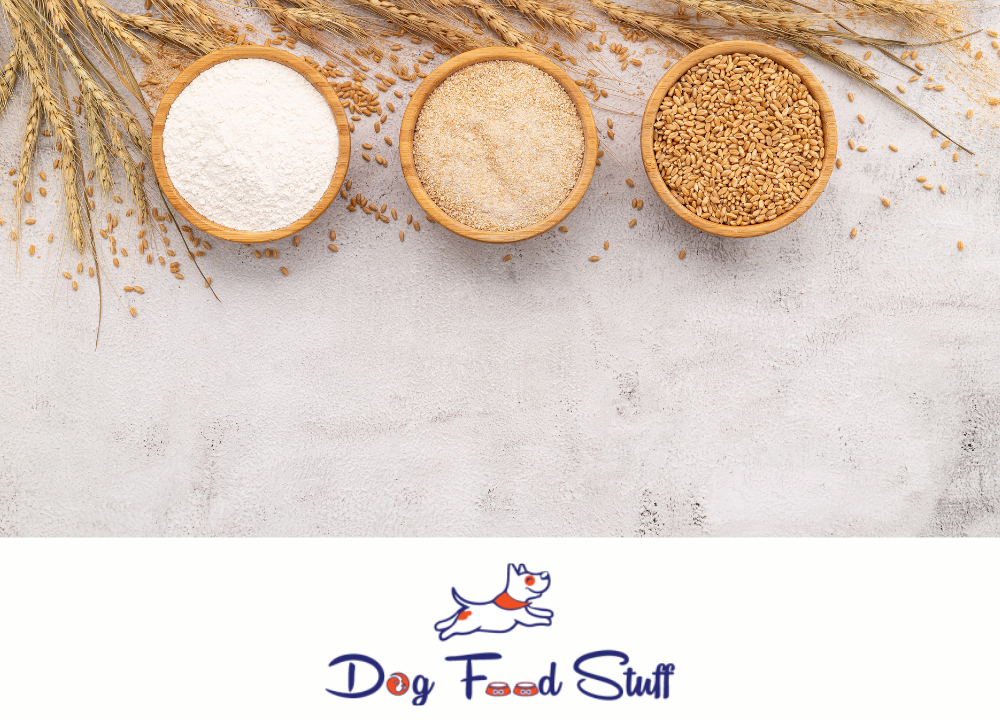Can Dogs Eat Flour Benefit or Harm? Comprehensive Analysis
Dogs can consume flour in moderation, but it offers minimal nutritional benefit and can be harmful if from grains to which the dog is allergic. Consuming large amounts or the wrong type of flour may lead to health issues like obesity or allergies.
Owners pondering the inclusion of flour in their dog’s diet should approach with caution, considering both the type and quantity. Flour, a common ingredient in many dog treats and foods, is generally safe for dogs, although not a necessity for their diet.
Integral to many recipes, it serves as a binder, providing texture and structure to homemade treats. Nonetheless, it’s essential for pet owners to be aware of the specific type of flour they use. Whole grain flours like wheat or rice are often harmless, but if a dog has a grain allergy, alternative flours like coconut or almond might be more suitable options. Ensuring your furry friend’s well-being involves scrutinizing food labels and being mindful about any changes in their diet.
Can Dogs Eat Flour?
Dog owners often wonder what foods their furry friends can safely eat. Among the many items found in our pantry, flour seems like a simple and harmless ingredient. Yet, is it safe for our canine buddies? Let’s dig into the details and answer the pressing question:
The Pros And Cons
Every coin has two sides, and the same holds true when it comes to dogs and flour. Pros include flour’s availability and its role in homemade dog treats. However, cons can’t be ignored—some flours contain gluten which might lead to allergies or digestive issues in dogs.
- Pros:
- Common ingredient in pet-friendly recipes
- Easy to digest when cooked properly
- Cons:
- Potential allergen for gluten-sensitive dogs
- Limited nutritional benefits
Nutritional Value
Flour is mostly carbohydrates. It provides energy but lacks essential nutrients dogs need. There are different types of flour, like rice, coconut, and almond flour. Each has a unique nutritional profile.
| Type of Flour | Key Nutrients |
|---|---|
| Wheat Flour | Carbohydrates, Protein, Fiber |
| Coconut Flour | Fiber, Protein, Fats |
| Almond Flour | Healthy Fats, Protein, Vitamin E |
| Rice Flour | Carbohydrates, B Vitamins |
Choosing the right flour is key. Opting for gluten-free varieties can be a better choice for sensitive dogs. Always consult with a veterinarian before making significant changes to your dog’s diet.
The Pros And Cons
Dog owners often wonder about human foods that their pets can safely consume. Flour is a common ingredient in many dog treats and food. Let’s explore whether flour offers any benefits to dogs or poses potential risks worth considering.
Benefits Of Dogs Consuming Flour
Flour can be a source of energy for dogs. Carbohydrates found in flour help fuel a dog’s daily activities. When included as part of a balanced diet, certain flours can offer some nutritional value. Here are benefits to note:
- Whole grain flours provide fiber, promoting digestive health.
- Rice flour can be a good option for dogs with wheat allergies.
- Some flours contain essential fatty acids and proteins.
Potential Risks And Side Effects
Despite some benefits, dog owners must exercise caution. Not every type of flour is suitable for dogs, and there are risks involved:
- Gluten intolerance can cause adverse reactions in some dogs.
- Excessive intake of flour may lead to obesity or diabetes.
- Flours with xylitol or chocolate are toxic to dogs.
- Uncooked flour may contain bacteria like E. coli or Salmonella.
To mitigate these risks, dog owners should:
- Choose dog-specific or whole grain flours.
- Use flour sparingly in homemade dog treats.
- Avoid flours with toxic additives and chocolate.

Nutritional Value
Understanding the nutritional value of flour can help gauge its safety and benefits for dogs. Flour comes packed with carbohydrates and varying levels of proteins and fats. The exact nutritional content depends on the flour’s type. While dogs rely on proteins as their primary energy source, moderate carbohydrate consumption can also be beneficial. Choosing the right type of flour is crucial to support your dog’s health.
Dogs can eat certain flours safely. These are generally whole grain or gluten-free options:
- Whole Wheat Flour: Rich in fiber.
- Rice Flour: Gluten-free and easy to digest.
- Coconut Flour: High in protein and fiber, low in carbs.
- Oat Flour: Contains vitamins and minerals.
It’s important to note that some flours, like those containing chocolate or xylitol, are toxic to dogs.
When it comes to the health benefits of flour for dogs:
| Flour Type | Health Benefit |
|---|---|
| Whole Wheat Flour | Provides energy and supports digestive health. |
| Rice Flour | Good for sensitive stomachs, promotes normal bowel movements. |
| Coconut Flour | Supports skin health, provides a protein boost. |
| Oat Flour | Enhances coat condition, aids in maintaining a healthy weight. |
Remember, flours are supplementary to a dog’s diet and should not replace their regular protein intake. Always consult your vet before introducing new food items.
Types Of Flour Dogs Can Consume
As a loving dog owner, knowing what types of flour your furry friend can enjoy is crucial. Some flours can offer health benefits, while others might pose risks. Let’s dive into the types of flour that are safe for dogs to consume, focusing on whole wheat, coconut, and almond flours.
Whole Wheat Flour
Whole wheat flour stands out as a good choice for dogs. It is rich in fiber which assists digestion. Baked treats with whole wheat are often a hit with pups. Make sure your dog isn’t allergic to wheat before sharing.
Key points for Whole Wheat Flour:
- High in fiber
- Perfect for homemade dog treats
- Ensure no wheat allergies
Coconut Flour
Coconut flour is a healthy, low-carb option that’s also high in protein. It’s great for dogs with grain sensitivities and helps maintain a healthy coat. Remember, introduce any new food slowly.
Benefits of Coconut Flour:
- Low in carbohydrates
- Grain-free for sensitive pups
- Supports skin and coat health
Almond Flour
Another excellent grain-free flour is almond flour. This flour is packed with healthy fats and vitamins. Use it sparingly due to its high calorie content. Check that your dog does not have a nut allergy beforehand.
Why Choose Almond Flour:
- Rich in healthy fats
- Grain-free choice
- Loaded with vitamins
- Use in moderation
Health Benefits Of Flour For Dogs
Many dog owners often wonder about the food they give to their furry friends. Knowing what’s safe and beneficial is crucial for their health. When it comes to flour, canines can indeed reap some advantages. This section dives into the health benefits of flour for dogs and explores how incorporating it into their diet can be advantageous.
Source Of Carbohydrates
Flour provides dogs with essential carbohydrates, which are a key source of energy. Like in humans, carbs in a dog’s diet help fuel daily activities. The right kind of flour – whole grain, for example – offers good carbs, supporting an active lifestyle.
Dietary Fiber
Whole grain flours are also rich in dietary fiber. Fiber aids in digestive health, promoting a smoother transit of food through the gut. It helps keep bowel movements regular and can prevent digestive issues such as constipation or diarrhea.
- Improves stool quality
- Supports colon health
- May aid in weight management
Energy Boost
Carbs from flour break down into glucose, which serves as a quick energy source. This glucose spike gives dogs a much-needed energy boost, especially for active and working breeds that require enduring stamina throughout the day.
| Type of Flour | Energy Content |
|---|---|
| Wheat Flour | High |
| Coconut Flour | Moderate |
| Almond Flour | Low |
Frequently Asked Questions
Is Flour Bad For A Dog?
Flour is not inherently bad for dogs, but it offers minimal nutritional value and can lead to obesity if consumed in large amounts. Some dogs may also have allergies to certain types of flour. Always check with a vet before changing your dog’s diet.
Is It Ok To Make Dog Treats With All Purpose Flour?
Yes, you can use all-purpose flour for homemade dog treats, but opt for whole wheat or alternative flours if your dog has a wheat allergy.
How Unhealthy Is Flour?
Flour isn’t inherently unhealthy, but its nutritional value varies by type. Refined flours lose fiber and nutrients during processing, while whole-grain flours retain more health benefits. Overconsumption may lead to health issues due to gluten content or high carbohydrate levels.
Is Self Raising Flour Bad For Dogs?
Self-raising flour is not recommended for dogs due to its potential harm. It can cause digestive issues and, in larger quantities, may lead to more serious health problems.
Conclusion
In sum, dog owners should approach flour with caution. Small amounts may be safe, but risks exist, particularly with wheat allergies or gluten intolerance. Always prioritize your pet’s health and consult your vet. Remember, moderation is crucial when it comes to your furry friend’s diet.
Keep their tails wagging with safe, nutritious choices.

